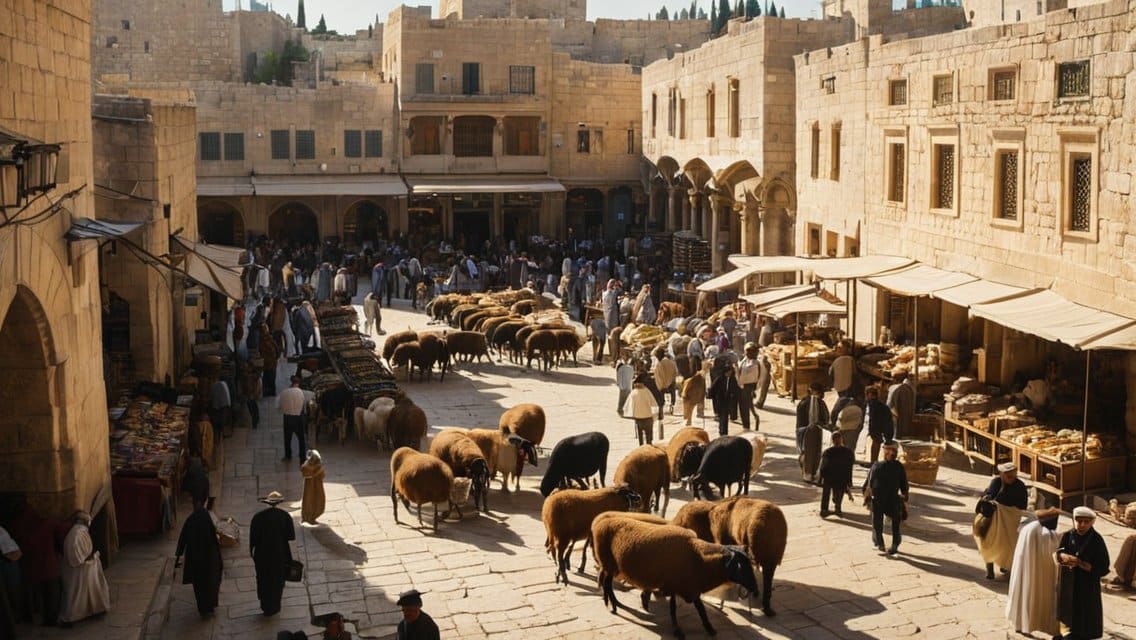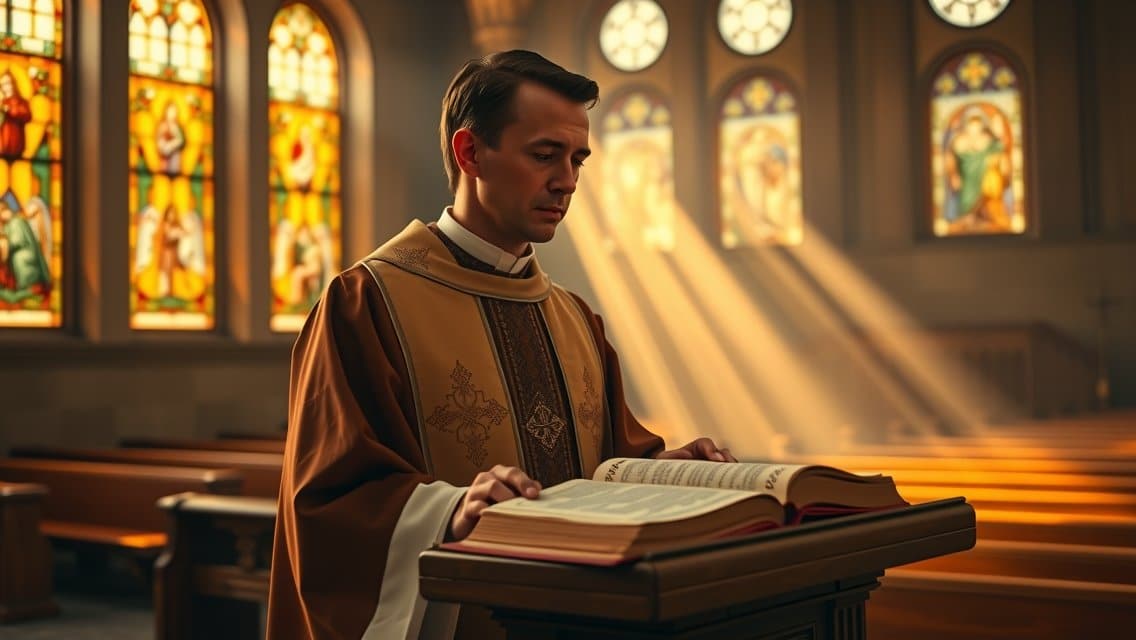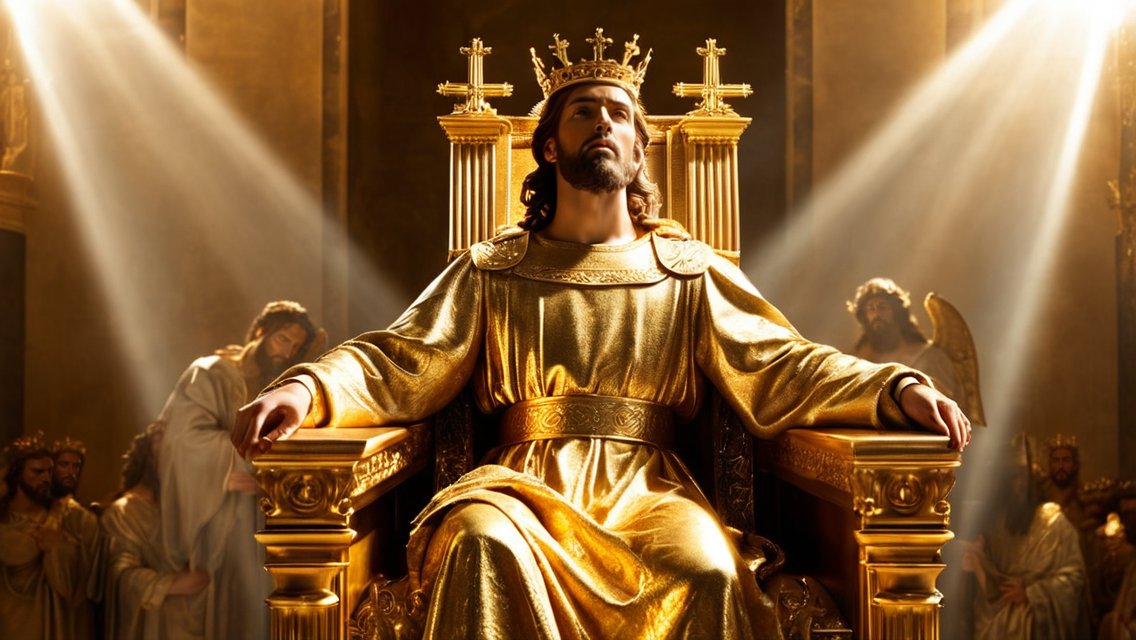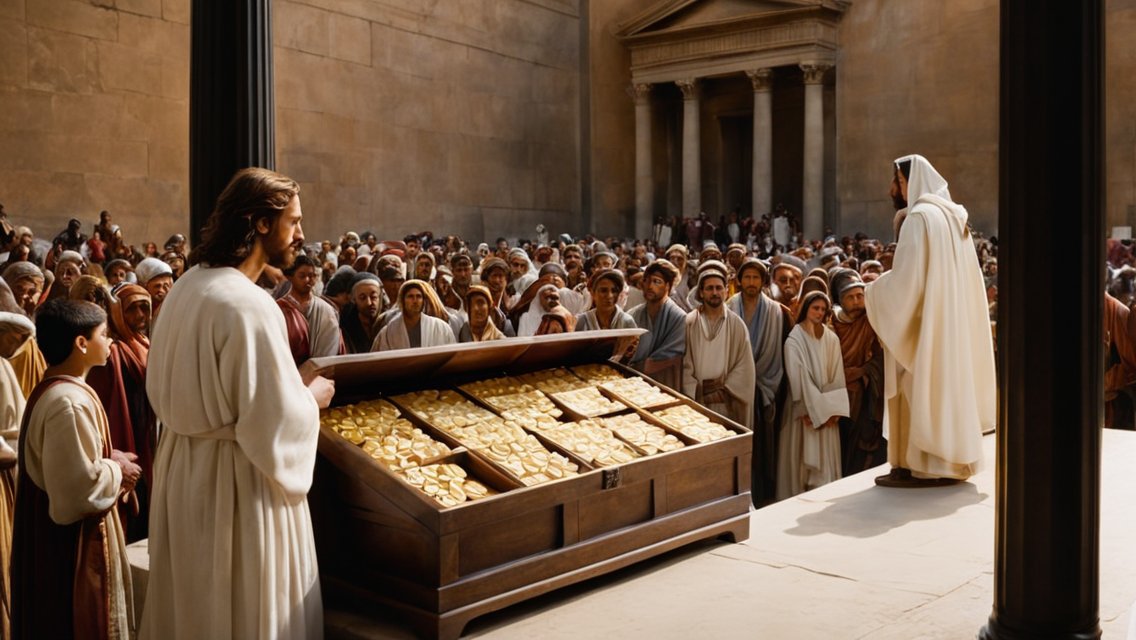Third Sunday of Lent Homily- Year B
Readings:
Ex 20:1-17
1 Cor 1:22-25
Jn 2:13-25
1st Reading – Exodus 20:1-17
1 In those days, God delivered all these commandments:
2 “I, the LORD, am your God, who brought you out of the land of Egypt, that place of slavery.
3 You shall not have other gods besides me.
4 You shall not carve idols for yourselves in the shape of anything in the sky above or on the earth below or in the waters beneath the earth;
5 you shall not bow down before them or worship them. For I, the LORD, your God, am a jealous God, inflicting punishment for their fathers’ wickedness on the children of those who hate me, down to the third and fourth generation;
6 but bestowing mercy down to the thousandth generation on the children of those who love me and keep my commandments.
7 “You shall not take the name of the LORD, your God, in vain. For the LORD will not leave unpunished the one who takes his name in vain.
8 “Remember to keep holy the sabbath day.
9 Six days you may labor and do all your work,
10 but the seventh day is the sabbath of the LORD, your God. No work may be done then either by you, or your son or daughter, or your male or female slave, or your beast, or by the alien who lives with you.
11 In six days the Lord made the heavens and the earth, the sea and all that is in them; but on the seventh day he rested. That is why the LORD has blessed the sabbath day and made it holy.
12 “Honor your father and your mother, that you may have a long life in the land which the LORD, your God, is giving you.
13 You shall not kill.
14 You shall not commit adultery.
15 You shall not steal.
16 You shall not bear false witness against your neighbor.
17 You shall not covet your neighbor’s house. You shall not covet your neighbor’s wife, nor his male or female slave, nor his ox or ass, nor anything else that belongs to him.”
Or Exodus 20:1-3, 7-8, 12-17
1 In those days, God delivered all these commandments:
2 “I, the LORD, am your God, who brought you out of the land of Egypt, that place of slavery.
3 You shall not have other gods besides me.
7 “You shall not take the name of the LORD, your God, in vain. For the LORD will not leave unpunished the one who takes his name in vain.
8 “Remember to keep holy the sabbath day.
12 “Honor your father and your mother, that you may have a long life in the land which the LORD, your God, is giving you.
13 You shall not kill.
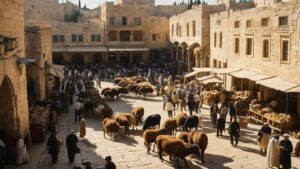
14 You shall not commit adultery.
15 You shall not steal.
16 You shall not bear false witness against your neighbor.
17 You shall not covet your neighbor’s house. You shall not covet your neighbor’s wife, nor his male or female slave, nor his ox or ass, nor anything else that belongs to him.”
Responsorial Psalm – Psalms 19:8, 9, 10, 11.
R. (John 6:68c) Lord, you have the words of everlasting life.
8 The law of the LORD is perfect,
refreshing the soul;
The decree of the LORD is trustworthy,
giving wisdom to the simple.
R. Lord, you have the words of everlasting life.
9 The precepts of the LORD are right,
rejoicing the heart;
the command of the LORD is clear,
enlightening the eye.
R. Lord, you have the words of everlasting life.
10 The fear of the LORD is pure,
enduring forever;
the ordinances of the LORD are true,
all of them just.
R. Lord, you have the words of everlasting life.
11 They are more precious than gold,
than a heap of purest gold;
sweeter also than syrup
or honey from the comb.
R. Lord, you have the words of everlasting life.
2nd Reading – 1 Corinthians 1:22-25
Brothers and sisters:
22 Jews demand signs and Greeks look for wisdom,
23 but we proclaim Christ crucified, a stumbling block to Jews and foolishness to Gentiles,
24 but to those who are called, Jews and Greeks alike, Christ the power of God and the wisdom of God.
25 For the foolishness of God is wiser than human wisdom, and the weakness of God is stronger than human strength.
Verse Before The Gospel – John 3:16
16 God so loved the world that he gave his only Son,
so that everyone who believes in him might have eternal life.
Gospel – John 2:13-25
13 Since the Passover of the Jews was near, Jesus went up to Jerusalem.
14 He found in the temple area those who sold oxen, sheep, and doves, as well as the money changers seated there.
15 He made a whip out of cords and drove them all out of the temple area, with the sheep and oxen, and spilled the coins of the money changers and overturned their tables,
16 and to those who sold doves he said, “Take these out of here, and stop making my Father’s house a marketplace.”
17 His disciples recalled the words of Scripture, Zeal for your house will consume me.
18 At this the Jews answered and said to him, “What sign can you show us for doing this?”
19 Jesus answered and said to them, “Destroy this temple and in three days I will raise it up.”
20 The Jews said, “This temple has been under construction for forty-six years, and you will raise it up in three days?”
21 But he was speaking about the temple of his body.
22 Therefore, when he was raised from the dead, his disciples remembered that he had said this, and they came to believe the Scripture and the word Jesus had spoken.
23 While he was in Jerusalem for the feast of Passover, many began to believe in his name when they saw the signs he was doing.
24 But Jesus would not trust himself to them because he knew them all,
25 and did not need anyone to testify about human nature. He himself understood it well
Homily
Signs of Scandal and Salvation
“Many believed in his ‘name when they saw the signs that he gave” (Jn)
Two religious phenomena hit headlines during Lent 2006. First, the scandalous cartoons of the prophet Mohammed in the Danish press caused violence and protests, worldwide. Second, a Times of India headline read, “Green Dangs painted saffron.” From February 11 to 13, 2006, Hindustan fundamentalists in Dangs District, south Gujarat, maligned Christianity, in general, and tribal Christians in particular, during the Shabri Kumbh Mela that manufactured myths about Lord Ram being served ber (berries) by a tribal girl. Symbols like saffron flags, tridents, swastikas and the like can either make or break communities.
Why do religious signs trigger such strong reactions? During Lent, we face, time and again, the sign of salvation – Jesus’ cross. Today’s second reading says: “The Jews demand signs and Greeks desire wisdom, but we preach Christ crucified!” During his lifetime, people yearned for ‘signs’ (miracles) from Jesus for him to ‘prove ‘his claims. Interestingly, Jesus never worked signs as ‘proof’ of his divine son ship. Likewise, Paul demands that the early Christians have faith in God’s power revealed by the cross and not bank upon human merit or miracles.
The second reading focusing on the cross is sandwiched, so to say, between the reading of the Decalogue (10 Commandments) and Jesus’ ‘cleansing of the temple’. Law, Cross, Temple – each of these is a powerful symbol that could lead us to God. Or God-lessness.
It was believed that, if one were to follow the Decalogue, one would be considered righteous, holy and ‘saved’. Understandably, strict observance of the Law became an obsession with pious groups like the Pharisees who believed that righteousness and salvation came only from observance of the Law. According to this thinking, one could ‘win salvation’ by one’s deeds, and there was, actually, no need of depending on God’s mercy. Indeed, the. Law almost became a substitute for God: a God-less lawfulness.
John’s account of the ‘cleansing of the temple’ differs from the Synoptic Gospels (Matthew-Mark-Luke) on three points: (a)John puts this episode right at the beginning of Jesus’ ministry and not just before his passion, (b) Jesus “makes a whip out of cord” thus showing greater anger and force [a feature taken up by some ‘theologies of revolution’], and, (c) citation of PS 69:9 – “Zeal for your house will devour me.” When Jesus challenges the temple authorities to “destroy this temple!” he speaks not of the Jerusalem Temple of stone and sanctuary, but of his crowned head, lanced heart and broken body. It is this temple, ultimately, that inaugurates the ‘new covenant’ and shifts worship from exteriority to interiority.
What does the ‘sign of the cross’ mean to you? What about Law and Temple? Trying to assess the knowledge of a class of catechism – kids, a-bishop once asked them, “By what sign will people know you are Christian?” Nobody answered. Seeking to give them a clue, the bishop thought of pointing out to his pectoral cross whereupon a child blurted out, “Love!” The bishop wanted to say, “Wrong!” but realized the wisdom of the child. Does true Love animate the ‘sign of the cross’ that l wear, begin my prayers and bless myself with, and trace on others’ foreheads? Without Love, all these crosses are mere totems. Pop – singers like Madonna too wear big crosses on stage!
‘Speaking of Gujarat’s tribal Christians, l was deeply moved ‘when Poslabhai Vasava of Karota village, south Gujarat, told me, “Father, many people laugh at us, Christians, and say, ‘Your god is a naked, helpless, dead god I’.” He then added, “But, Father, we only know how much power is there in Christ’s cross!” A simple, uneducated tribal Christian revealed the mystery of the cross to me that day.
Like the readings of this Sunday, may the cross be sandwiched between our practices of Law (moral conduct) and Temple (worship). And like sandwich-spread that makes two slices of bread savoury, may the love, the power and the wisdom of Jesus’ cross animate both, our work and our worship.
